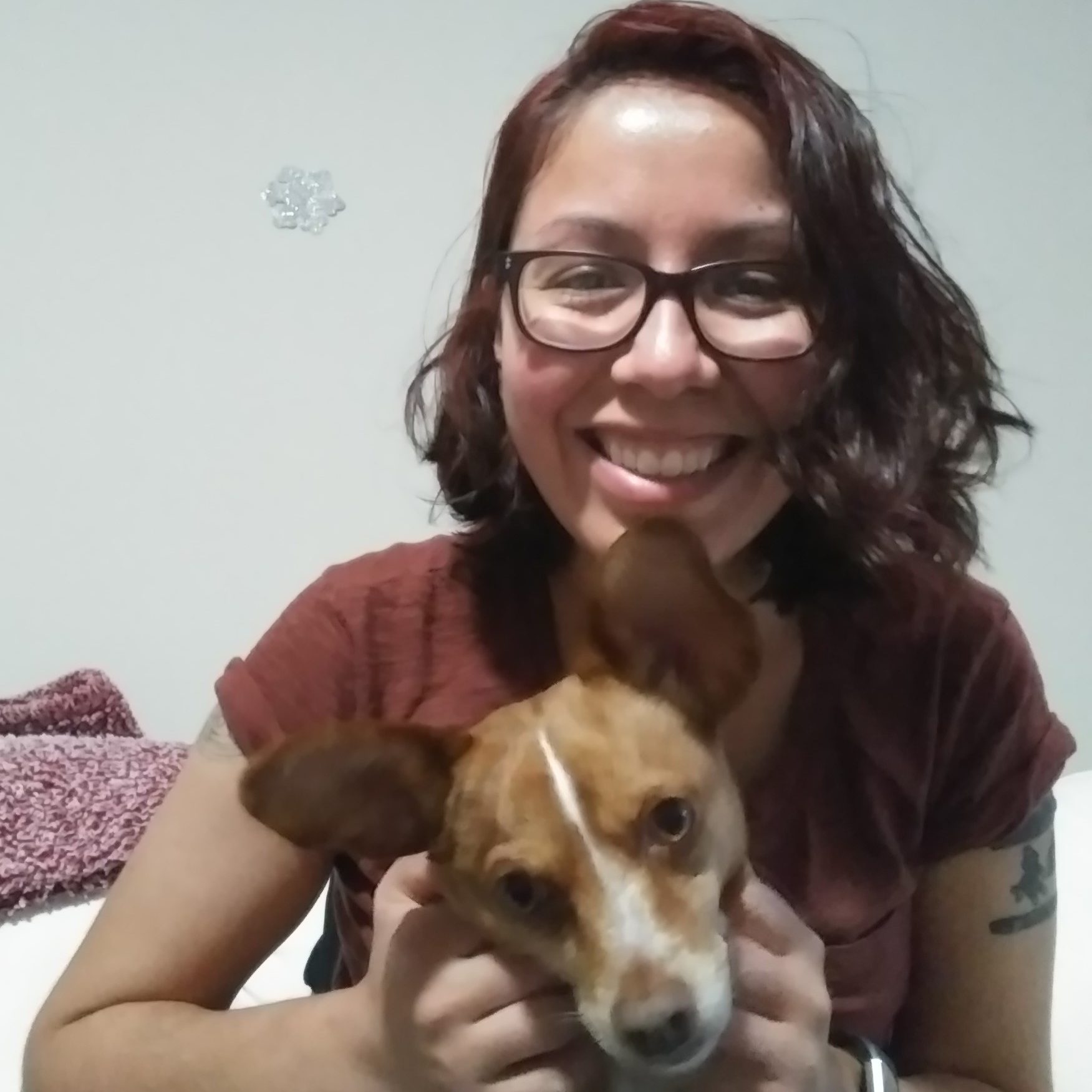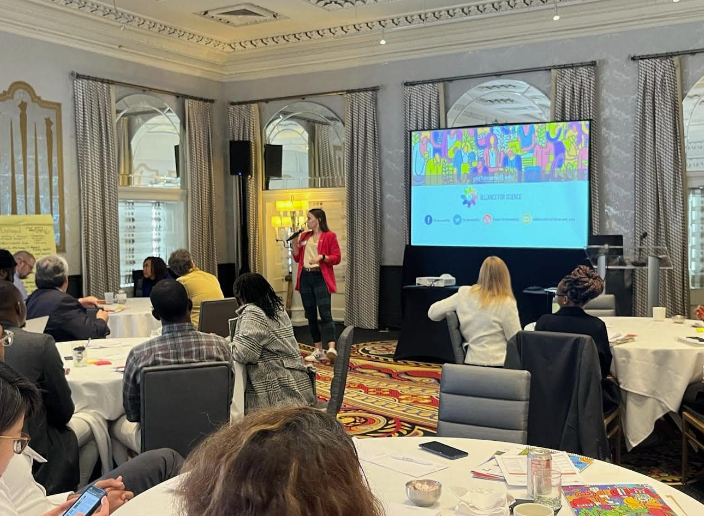About two months ago after approaching a mental health professional for what I thought was persistent depression, I was diagnosed with attention deficit hyperactivity disorder (ADHD). I had seen various mental health professionals in my life and ADHD never came up in our conversations. All I actually knew about ADHD is that ADHD stigma exists and that stimulant medications used to treat ADHD are sometimes referred to as “study drugs.”
While looking for resources, I quickly learned there are not currently many to help manage an ADHD diagnosis in graduate school. Browsing the University of Georgia’s Disability Resource Center (DRC) page, we can find guidance on documentation needed to register for services as well as a list of common accommodations available through the DRC. However, common accommodations (at UGA and other higher education institutions) tend to target lecture and testing environments. Aside from required course work, graduate students are often working independently under the supervision of a major professor without the structure built into undergraduate education. This article is meant to be a brief introduction to ADHD, to provide insights from others who have experienced this (you are not alone!), and to be a resource for graduate students beginning their ADHD journey.
ADHD is not just for kids
ADHD is a neurodevelopmental disorder that is primarily diagnosed in childhood. ADHD may present as predominantly inattentive, predominantly hyperactive, or combined behaviors. Some symptoms seen in children with ADHD are trouble focusing on tasks, making careless mistakes, failing to follow through on instructions, often being on the go, or failing to wait their turn.
Though we are most familiar with childhood-onset ADHD, adult-onset ADHD may be seen as a result of a missed diagnosis or misdiagnosis. There are several reasons why a child may go undiagnosed or misdiagnosed at a young age. These include comorbidities, socioeconomic status, ethnic/racial disparities, and the stigma still associated with ADHD. Co-occurring disorders that might lead to misdiagnosis include depression, anxiety disorders, and personality disorders.
A longitudinal study following children (n = 17,100) from kindergarten to eighth grade found that African American and Hispanic children were 69% and 50% less likely to receive an ADHD diagnosis than white children, respectively. Bussing and colleagues found that financial barriers, stigma, and negative expectations of treatment also kept parents from seeking help for their ADHD-diagnosed child. Children also go undiagnosed because they develop coping strategies that mask their ADHD symptoms. These strategies, however, may not be enough to handle increased responsibilities as an adult. Adult ADHD can then manifest as disorganization, poor time management skills, problems focusing on or completing tasks, etc.
This may be why Chung and colleagues found that ADHD prevalence among adults in the Kaiser Permanente Northern California System increased by 123.3% from 2007 to 2016 (0.43% to 0.96%). Within the same timeframe, ADHD prevalence among children increased by 26.4% (2.96% to 3.74%). In general, ADHD prevalence has been increasing over the last five decades. Some say this is due to inadequate evaluations and increased expectations put on children. Others say this is a result of misdiagnoses and missed diagnoses in girls and marginalized communities.
ADHD in graduate school
ADHD is not just for kids, and still, resources on how to navigate an ADHD diagnosis in graduate school are scarce. In my search for guidance, I reached out to graduate students who were open about their experience with adult ADHD diagnoses on social media platforms. Various wonderful people agreed to answer some questions. Below you will find some of the insights they shared.
- How did you find out you had ADHD?
Postdoctoral Fellow (PF): “…an Assistant Professor…and I got into a long conversation about his struggles with trying to navigate grad school with undiagnosed ADHD and how he only received a diagnosis just a couple months before he defended his dissertation. He told me that the diagnosis made a major difference for him and his career…A couple months after this conversation, I was meeting with my PhD advisor who pointed out that I was unfocused in that I was always looking into different phenomena or switching to a different dataset. So, it was really these two conversations that pushed me to get tested and ultimately diagnosed about 1 year into my PhD program.” Click here for complete interview.
Aaron Alcala (AA), Graduate Student: “This was triggered after my qualifying exam. I had poured my soul into prepping for this exam and I failed. As graduate students, our identity is often connected to who we are as scientists. Feeling that I failed as a scientist led to anxiety and depression. As I studied to retake my qualifying exam I wondered if ADHD had anything to do with this failure. This would make sense given the struggles I experienced in high school and as an undergraduate.
After seeing a psychologist and getting a formal diagnosis, I was referred to a psychiatrist to discuss treatment.” Click here for complete interview.
- What struggles did you face in graduate school before your diagnosis?
Research Scientist (RS): “I could not focus on my big challenging work task – primarily my research. I would use service, outreach, and teaching to procrastinate the big research project, as these “side” projects would provide a quick dopamine hit that I needed. I struggled with not having as many connections with other students in my cohort, as I work better in teams. I struggled with time management and prioritizing tasks, either everything was urgent or nothing was. I struggled with perfectionism. I connected my self-worth directly with my productivity. I was doing great in other aspects of graduate school, but none of those could make up for the challenges. I would spend weeks trying to get a task done, saying I would start it and dreading every meeting because I knew I hadn’t done the work. It was hard to not spend hours on social media or youtube.” Click here for complete interview.
- How has your diagnosis changed your approach to your graduate studies?
AA: “Now that I know why I experienced these struggles, I have built a support network to help keep me accountable. Medications help address symptoms of ADHD, but they do not cure it. So, I also pursued academic coaching at UGA. This helps with accountability as well as setting realistic goals.
It is important to realize that someone outside of your personal/professional network (such as a therapist or coach) can give great perspective to issues you may face. They are trained and paid to listen to you (assuming you find a good fit, you receive some really helpful advice).”
Melanie Pagan (MP), Graduate Student: “In a number of ways! One, it has validated my experiences. So, it’s not something that I know and see in my life that no one else knows about. It’s also helped me feel a lot less shame around needing accommodations and just my brain being wired differently. I’ve moved into a space of identifying as neurodivergent, identifying as a person with a disability…I also ask for help a little bit more without feeling embarrassed or shame, and that is helpful to produce better work.” Click here for complete interview.
Paige Copenhaver (PC), Former Graduate Student: “After my diagnosis, I stopped comparing myself to other students in my cohort who did not have ADHD. I realized that my brain is different than theirs, and I just needed to work a little harder to create systems that work for me to get all of my work done. I started to get meticulously organized and use a timer for virtually everything I did in a day, and I took mandatory breaks in between work sessions to give my brain a rest. Timing my activities, having a weekly agenda of all of my tasks, meetings, and events to tend to, and asking for deadline extensions when I really needed them completely changed my grad school experience for the better.” Click here for complete interview.
- What advice would you have for current graduate students experiencing the difficulties you experienced?
PC: “If you think you may have ADHD, I would recommend trying to get a diagnosis. If you are interested in medicating, do research, talk to your doctor, talk to people you know who are medicated for ADHD, and read up on online forums. If you are not interested in taking medicine for ADHD, I highly recommend going to therapy to learn how to cope with ADHD’s impact on not only school but life in general…Most importantly, tell people you work with, or at least your PI, about your diagnosis or potential diagnosis. This is especially important if you are falling behind on deadlines and not achieving as much as you know you could. Don’t be afraid to ask for deadline extensions or even more frequent check-in meetings to ensure you are staying on top of your work. Also, don’t be afraid to ask for help!”
MP: “Tap into the resources. You are by law entitled to accommodations… The institution is not obligated by law to meet your accommodations if you don’t say anything. Retroactively, you can’t receive help or change something. Get an evaluation if you are able to. I do recognize that might be a financial barrier for some people. There are still a lot of strategies out there to build your toolbox. Lean into finding support from other people…If you are in a space where you feel you’re not going to receive support from your faculty if you disclose, go through the normal channels because they will communicate with your faculty and provide you a letter (that doesn’t disclose your disability) that lists the accommodations they are required to provide by law. If you are comfortable disclosing (you do not have to say which disability) to your faculty, go over the things that would be helpful for you and your professors to be successful.”
PF: “I think if students see themselves needing to work more or struggling more than their peers to try to keep up, then it’s worth pursuing testing to try to identify the cause of the problem. At the same time, I’ve also witnessed several people who have struggled considerably with their research or in their jobs, spent lots of money to pursue a diagnosis, and got inconclusive results and/or had to go through the process for several months/years with various psychologists or doctors before identifying the cause and getting any help whatsoever…Getting an adult ADHD diagnosis is hard, especially for high-achieving people like graduate students.”
RS: “Ask for help. Talk to your doctor, talk to a counselor, read about ADHD, and advocate for yourself if you think you might have ADHD. No one would have considered it if I didn’t bring it up. Navigating the healthcare system is hard. You will need to be strong for yourself and demand what you need. Be persistent and get a friend or partner to help get you through all the appointments because it can be exhausting and difficult for people with ADHD to call and make appointments, show up to the appointments, pick up medications, and then take the medications. Tell someone you trust and please ask for help.”
- If you disclosed to your institution or PI/major professor, did you get support?
PF: “Not really. My PhD advisor was receptive to my diagnosis and at times seemed incredibly supportive, but then at other times, he would witness me struggling extensively with something and refuse to meet with me to help me sort out my thoughts or help me with the tasks themselves…there is not a lot of clear guidance out there about how to accommodate a grad student or researcher with ADHD. The focus seems to be exclusively on course/exam accommodations and stuff like that, but that is totally irrelevant for grad students having to complete independent research projects or generally people once they enter the workplace.”
MP: “Yes! I love my school. I was prepared for the worst, but it has been a very positive experience. I also know that part of it is probably the type of program I am in. I am in an education inequality program where the faculty are scholars in race, international ed policy, in disability. I am in an academic environment where we look at the experiences of marginalized people and we’re looking at education. I recognize the space that I’m in. People in other spaces might not receive the same help or support that I have.”
RS: “I disclosed it to my supervisors, and they were all very supportive. I was able to get accommodations to come into the office every day, which has been very helpful…I disclosed my diagnosis to my PhD advisor and they wished we would have known before, as that would have changed the trajectory of the projects and they could have adapted to my needs. Their child also has ADHD, so they had experience managing the symptoms and finding accommodations.”
AA: “My PI and department were supportive. I registered with the UGA Disability Resource Center and, while many of the accommodations available are mostly useful for undergraduates, my department did give me an extra three months to prepare to retake my qualifying exam. Registering with the DRC also helped make the diagnosis and whole experience more real.”
PC: “I did disclose my diagnosis to my PI, and they were very understanding and empathetic of my situation. We created ways to adjust the traditional grad school experience to make it work better for me. For instance, when I first started, we had weekly meetings to discuss my progress and questions. We changed the meeting schedule to be at least twice a week, and we created hard internal deadlines since I am highly motivated by deadlines.”
Navigating an ADHD diagnosis in graduate school
I am still learning what this diagnosis means for me, how it currently affects my life, and trying to find the tools that will help me be successful in graduate school and life in general. Though it is not openly talked about, there are many other graduate students who have also experienced this. Though it is not openly talked about, doing so might help those trying to find a community to lean on.
Resources at UGA
Disability Resource Center: If you are seeking accommodations at UGA, you must Register for Services through the DRC
USG Disability Documnetation Requirements: If you wish to Register for Services through the DRC, you must provide the documentation required by the University System of Georgia
Regents Center for Learning Disorders: is one of three centers across the state of Georgia established by the USG Board of Regents to provide assessment, training, research, and resources related to students who have learning disorders. If you wish to try stimulant medication through the UGA University Health Center Counseling and Psychiatric Services, you will need evaluation documentation similar to that provided by the RCLD. Evaluations at the RCLD cost $500 and are not covered by insurance.
UGA School Psychology Clinic: also provides formal ADHD evaluations. Contact for fees and services.
UGA Center for Counseling and Personal Evaluation: provides formal ADHD evaluations. Call for fees. Ask about their ADHD support group.
UGA Counseling and Psychiatric Services: CAPS does not provide ADHD evaluations. Once you have required disability documentation requirements in hand, you can approach CAPS to treat ADHD with medication. CAPS does offer short-term individual counseling and group counseling. Call for copays as these may have changed in the last couple years.
UGA Academic Coaching: This is currently only offered for undergraduate students. You can inquire anyway so they know graduate students also need these services.
Other resources
Zocdoc: Find a Doctor – Doctors Near You: Zocdoc allows you to search for mental health professionals based on your insurance provider.
Psychology Today – Find a Therapist: Psychology Today allows you to search for mental health professionals based on your insurenace provider.
LifeStance Health: provides psychological testing in Georgia. Call to see if your insurance will cover their evaluation. (470) 833-1313
Reading
Delivered from Distraction: Getting the Most out of Life with Attention Deficit Disorder
Finding mental-health clarity under pandemic pressures
About the Author
Ale Villegas is a Ph.D. candidate in the Department of Cellular Biology at UGA. Ale studies the egress of malaria parasites from red blood cells during their asexual life cycle. At UGA, she is also an advocate for students and diversity in STEM. Outside of lab, she loved going to concerts and 80s/new wave dance parties. During the pandemic, she is enjoying learning and writing about science policy, watching Schitt's Creek on repeat, and getting to know her silly pandemic rescue (Tavi). You can connect with Ale on Twitter @_ale_villegas.
-
Ale Villegashttps://athensscienceobserver.com/author/ale-villegas/






